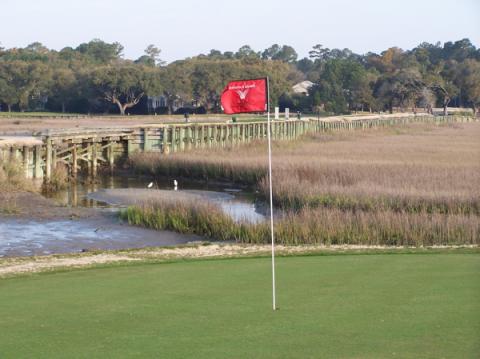
The full 10 1/2 hours of golf instruction included in the Pawleys Plantation golf package may not help you avoid double bogey if the wind is blowing at the bedeviling 13th on the Jack Nicklaus layout.
Shortly before I arrived today at Pawleys Plantation in Pawleys Island, SC, a complimentary review of a golf package at golf community resort arrived in my email inbox. The folks at Golf Vacation Insider, publishers of the excellent and purely objective Golf Odyssey vacation golf newsletter, commended Pawleys Plantation on its "Best Ever Golf School" package. The package includes three nights accommodation, two rounds on the excellent Jack Nicklaus golf course, three breakfasts, and 10 ½ hours of golf instruction at the on-site Ritson/Sole golf school. The school sits at the far end of Pawleys Plantation practice range, about 600 yards away.
Typically, any come-on with the words "best ever" would be a turnoff to a scrupulously objective guy like GVI's Craig Better, who wrote the article, but Craig calls the Pawleys package "an excellent deal" at $999 (good through May 18). Read the entire review here. This could be a great opportunity to not only check out a home on the course, but also fix your golf game as well. I know Pawleys Plantation better than I do any other golf community; if you would like more information, please contact me.























